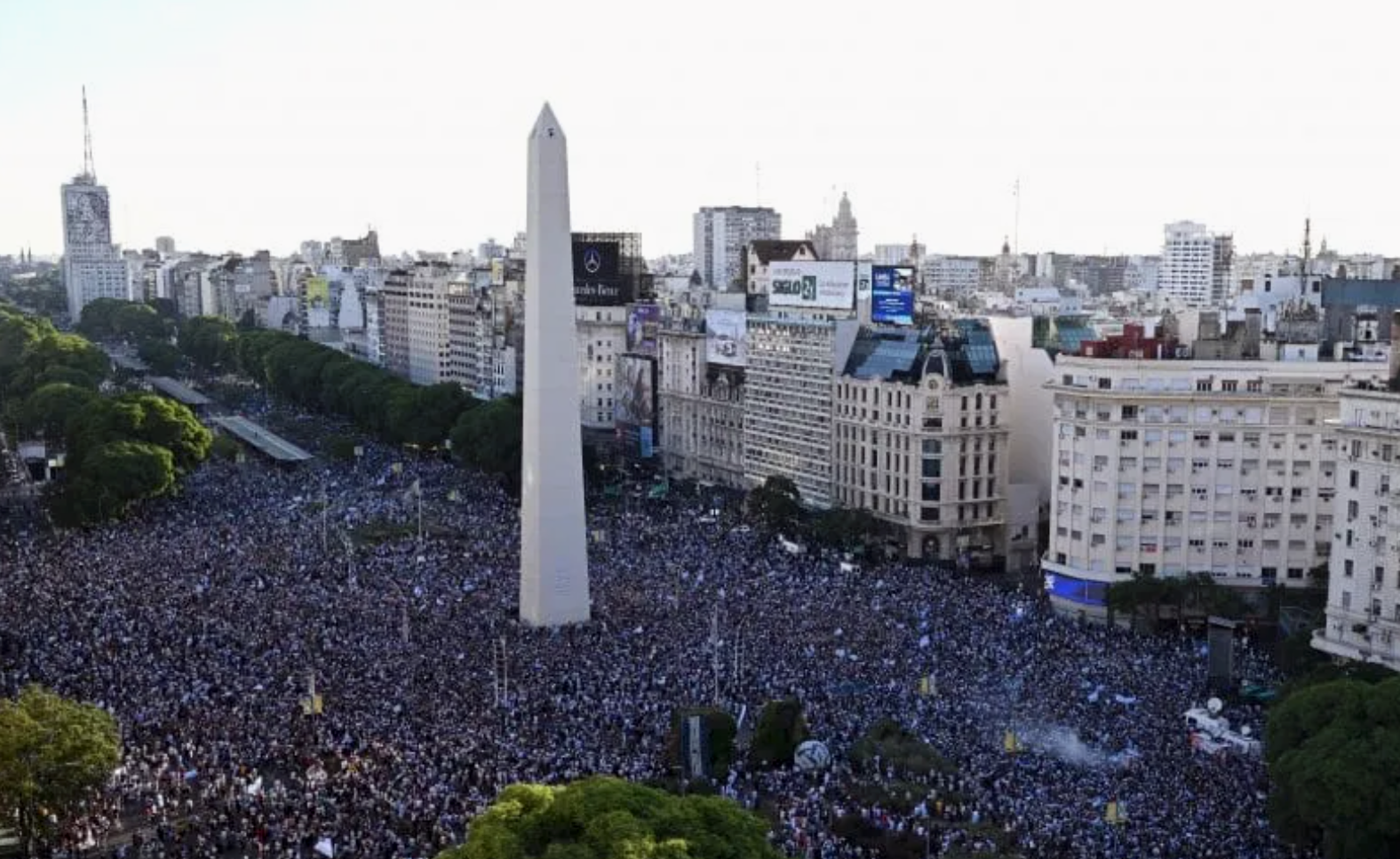Soccer and politics are, especially in Latin America, two passions that go hand in hand, despite all those who claim that these two passions should not be mixed. The recent World Cup in Qatar was just one more example of this political-soccer symbiosis in the Latin American region. However, on this occasion, soccer has not contributed to restoring the ties broken by politics. A politics that has caused “Latin America to split again into two incommunicado blocs,” says Carlos Granés, author of Delirio Americano. A trend that soccer has reinforced.
Politics, soccer, and its derivative nationalism are passions that feed back on each other. An Argentine movie (The Secret in Their Eyes) captured this very well when one of the characters stated, emphatically, that “Racing is a passion. Do you realize, Benjamín? The guy can change everything: his face, his house, his family, his girlfriend, his religion, and his God. But there’s one thing he can’t change, Benjamín… he can’t change his passion”.
The recently finished World Cup has been a good mirror in which to contemplate the current situation of Latin America in the political, economic, and social fields and even with respect to a regional integration based on the feeling of Latin Americanism. In the political field, it has become evident that the “crack” is not only Argentina’s patrimony: it has a regional scope, although in each country it assumes different labels related to the “anti” feeling (anti-Fujimori, anti-Lulist/anti-Bolsonarist, anti-Petrist, anti-Obradorist, anti-Correist…) that seems to be the only thing that, at times, nucleates and articulates Latin American societies.
A crack that not only makes coexistence almost impossible but also ends up undermining the common national identity linked to the cohesive signs. Brazil is an example of this phenomenon. The Canarinha national team, which since the times of Getúlio Vargas was a nexus of national unity by embracing ethnic, religious, or geographical diversity, has not fulfilled that role on this occasion. Bolsonaro’s appropriation of the green and yellow jersey, in a country fractured between Bolsonarist and anti-Bolsonarist supporters, has made this symbol of cohesion much less so now.
In addition, the fact that players such as Neymar supported the president led the anti-Bolsonaro sector to take Richarlison, declared anti-Bolsonaro, as their standard-bearer. Even the president-elect, Luiz Inácio Lula da Silva, had to say the following on his Twitter account: “We should not be ashamed to wear the green and yellow jersey“.
At the beginning of the World Championship, the prevailing idea was that it would serve as a balm so that the current and predominant accumulated citizen malaise and the disaffection born from the frustration of expectations would pass into the background. However, political times have accelerated in this World Cup month in which there has been a thwarted coup d’état in Peru, a diplomatic crisis between Lima and Mexico City, supporters and detractors of Andrés Manuel López Obrador taking to the streets, and the condemnation of Cristina Kirchner and the subsequent political earthquake.
It is clear that the placebo effect of a World Cup, which is surely only remarkable for the winner, should be relativized. But even in this case, it is of very short duration, because the day after the massive celebrations, the harsh situation (inflation, insecurity, and generalized uncertainty) gives the population a reality check. The deep crisis in some countries (Argentina) or the modest role of some national teams (Ecuador, Costa Rica, and Mexico) explains the limited impact of the World Cup on the national political reality.
The World Cup was also an example of how the internal problems of Latin American countries become a burden for their international projection. Ecuadorian President Guillermo Lasso was not present at the inauguration of the tournament (at the Ecuador-Qatar match), due to the security crisis in the Andean republic, which had just decreed a state of emergency in several departments with high crime rates. And Alberto Fernández did not accompany Emmanuel Macron in the box at the final, due to a mixture of reasons ranging from avoiding bad luck to not giving a sign of frivolity: traveling to Qatar to watch a soccer match, when the country is in the midst of an inflationary spiral and the economy is on the wire.
Finally, the World Cup has shown that, although there is much that unites Latin Americans, it is not enough, because other passions corner the theoretical common bonds. Some authors, such as Carlos Malamud, point out that excessive nationalism is one of the reasons why integration has not advanced sufficiently in Latin America in the last half-century. And that is what happened during the World Cup. While some presidents such as López Obrador declared themselves in favor of Argentina because it is a Latin American country, a significant part of Latin Americans, either because of snobbery, inherited clichés about Argentina, or old rivalries, preferred the French victory.
Throughout history, soccer has proven to be a strong social glue. However, in this World Cup, it has become evident that its action loses strength in contexts such as the current one of polarization where what divides Latin Americans prevails more than what unites them both on a regional scale and in terms of internal fractures and cracks.
These are the ingredients of a new Latin American delirium, which, by appealing to passions, does nothing to contribute to coexistence, since it corrodes the foundations of democracies.
*Translated from Spanish by Janaína Ruviaro da Silva













